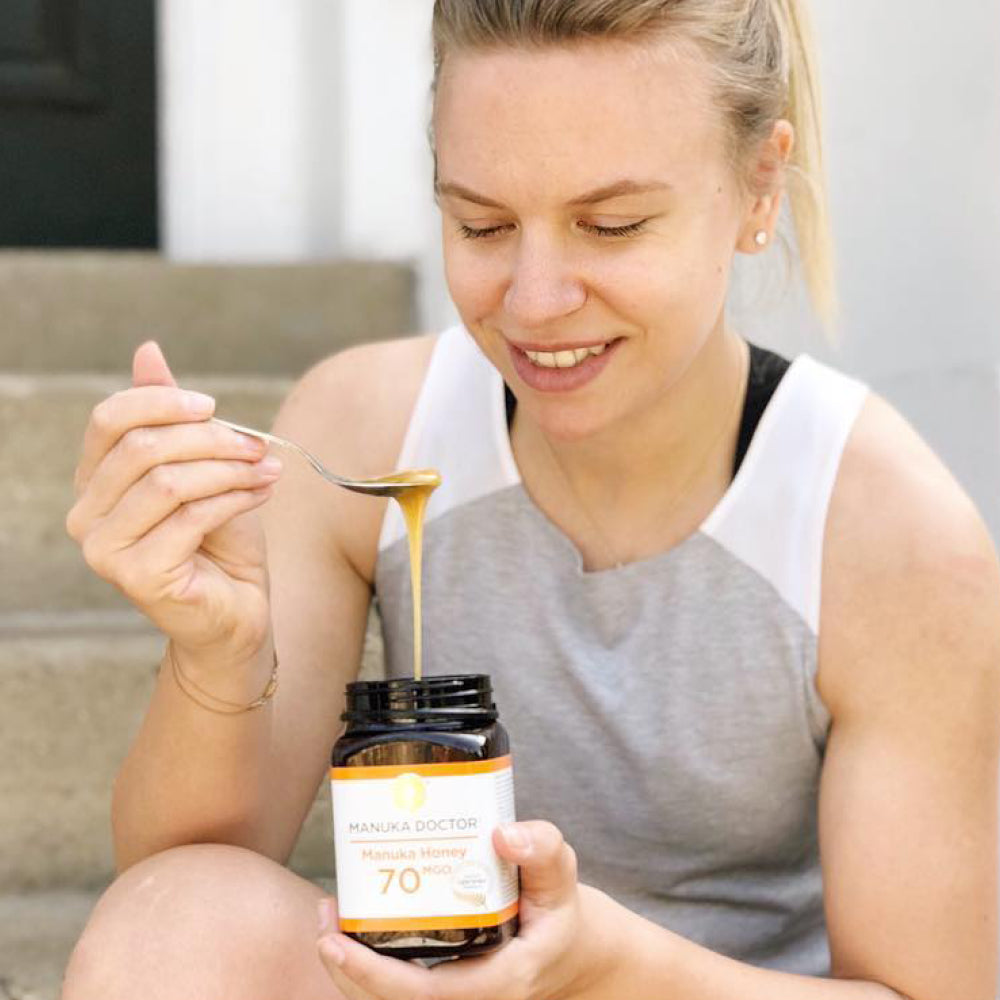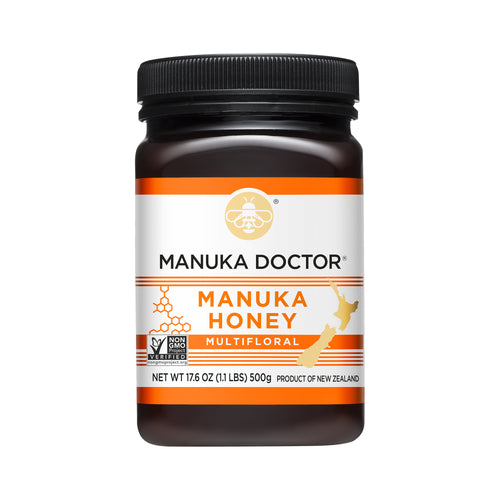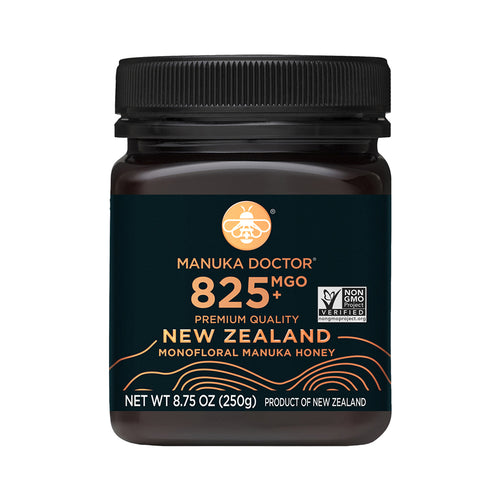Read Time: 4 minutes
Summary:
You may already turn to Manuka honey for soothing a sore throat or supporting your daily wellness. But what’s really happening inside your body when you take it? From powerful antibacterial action to antioxidant protection, discover the science behind this natural super-honey — and why it’s more than just a sweet treat.
A Special Honey
You probably reach for your jar of Manuka honey when you have a cough or sore throat – or perhaps you use it every day as part of your wellbeing routine. But have you ever wondered exactly what it’s doing inside your body? Here, we take a look at some of the key properties that make this honey so special.

Antibacterial activity
Manuka shares a lot of properties with other honeys. But it has something unique, too – MGO, or methylgloxal, to give it its full name. It comes from the dihydroxyacetone (DHA) found in the nectar of Manuka flowers. Bees produce honey from this nectar and, over time, it develops high levels of MGO. This is considered the main reason Manuka honey is so good at fighting bacteria, although it has other properties that contribute too, including hydrogen peroxide, flavonoids, an antibacterial peptide called bee defensin-1, its pH and low protein content.[1]
Manuka honey has been shown to change the shape and size of some bacteria, which affects their ability to divide and multiply.[2] It’s been found to inhibit around 60 species of bacteria, including h. pylori, which causes stomach ulcers, and staphylococcus aureus, a common and often stubborn bacteria that causes skin problems and occasionally very serious infections.[3] This could potentially make it an important weapon in the fight against antibiotic-resistant bacteria.
Read more: Why is Gut Health so Important?

Inflammation soothing
Inflammation is a natural and important part of the body’s healing process. But when it becomes chronic, it can create new problems. Chronic inflammation can hinder wound healing, and is also linked with inflammatory autoimmune conditions such as rheumatoid arthritis.
Manuka honey’s been found to help dampen down inflammation by modulating the release of substances including cytokines. This is one of the reasons it’s often used in hospital dressings to treat stubborn wounds and sores. As well as soothing the inflammation, its high sugar content draws fluid and nutrients from deeper in the tissue, helping to flush out bacteria and other toxic material, antioxidant flavonoids gobble up damaging free radicals and the honey protects the wound site – so its anti-inflammatory properties team up with other activities to fight infection.[4]
Virus busting
In the wake of the Covid-19 pandemic, there’s been increased interest in Manuka honey’s potential anti-viral properties. The research is still preliminary so scientists don’t know how it would work in humans - but what we know so far does give a few hints as to how Manuka honey may deal with viruses. A 2014 study showed it was a potent inhibitor of influenza, stopping the viral cells from replicating in the lab.[5] More recent research has suggested MGO may have a role in inhibiting the virus that causes Covid-19, by increasing levels of immune system cells that fight it, while regulating inflammation.[6]
Antioxidant protection
Aside from its other actions, Manuka honey has been found to have high levels of antioxidants, particularly a polyphenol called methyl syringate. Antioxidants are substances that destroy damaging free radicals in the body, thereby protecting the body’s cells in a number of ways, including with antibacterial and anti-inflammatory actions.[7]
What does all this mean for you?
What we know so far goes some way to showing why Manuka honey might have a range of medicinal benefits, from soothing inflammatory skin conditions and sore throats to easing digestive issues. We need more research to prove exactly how it may help various conditions. But spooning delicious Manuka honey into a hot drink or drizzling it over porridge may be one of the simplest ways yet to supercharge your wellbeing. Why not explore Manuka Doctor’s range of honeys?
Read more: Six easy, essential tips to help you eat better this winter
Sources:
[1] Johnston M et al. Antibacterial activity of Manuka honey and its components: an overview. AIMS Microbiol. 2018; 4(4): 655–664.
[2] Johnston M et al. Antibacterial activity of Manuka honey and its components: an overview. AIMS Microbiol. 2018; 4(4): 655–664.
[3] Mandal MD. Honey: its medicinal property and antibacterial activity. Asian Pac J Trop Biomed. 2011 Apr; 1(2): 154–160.
[4] Minden-Birkenmeier B et al. The Effect of Manuka Honey on dHL-60 Cytokine, Chemokine, and Matrix-Degrading Enzyme Release under Inflammatory Conditions. Med One. 2019; 4(2): e190005.
[5] Watanabe K et al. Anti-influenza Viral Effects of Honey In Vitro: Potent High Activity of Manuka Honey. Archives of Medical Research, Volume 45, Issue 6, August 2014, Pages 516
[6] Hossein KS et al. Prospects of honey in fighting against COVID-19: pharmacological insights and therapeutic promises. Heliyon. Volume 6, Issue 12, December 2020, e05798
[7] Wang H. The study of the antioxidant activity of phenolic components of Manuka Honey (thesis, University of Waikato) https://researchcommons.waikato.ac.nz/bitstream/handle/10289/5696/thesis.pdf?sequence=3




